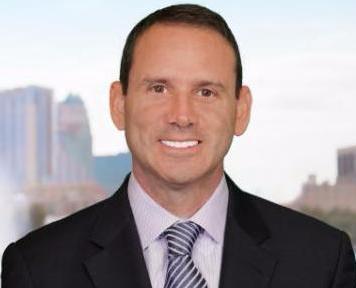As with each year, we hope for a season with no hurricanes coming our way. However, it is safe to expect that there may be at least one such event in the coming months and, at the start of the hurricane season, it is prudent to plan for that possibility.
If the Board desires additional information and contact information for obtaining the free inspection and analysis of the condition of the community, please contact Kaye Bender Rembaum. The Firm wishes all a safe and peaceful hurricane season!
Some of the planning steps that should be considered include the following:
- Create a Disaster Plan and establish off-site contact information and meeting points.
- Establish Evacuation Routes and conduct building or community evacuation drills in the weeks leading up to and once the hurricane season has begun.
- Verify Emergency Generators & Supplies operate and that fuel, flashlights, batteries, water and other necessities are available.
- Backup Computer Files and store information offsite, in case computers crash or systems fail.
- Secure the Premises – Make preparations for routine lockdown of the building(s) or other facilities as a storm approaches, so the building(s) is(are) secure during the storm and safe from vandalism or looting if a hurricane strikes.
- List of Owners & Employees – Have on hand a current, hard-copy reference list complete with the names of all property owners, emergency contact numbers and details of second residence addresses, as well as a list of all association employees, with full contact details.
- Photograph or Video Premises – Keep a visual record through video or photographs of premises, facilities and buildings to facilitate damage assessment and speed damage claims in a storm aftermath. Consider having the premises evaluated by appropriate professionals to establish the conditions prior to any hurricane event. (see further details on this item below)
- Building and Facilities Plans – Make sure a complete set of building or community plans are readily available for consultation by first-responders, utilities workers and insurance adjusters following a storm.
- Insurance Policies & Agent Details – Be sure all insurance policies are current and coverage is adequate for community property, facilities and common areas and compliant with State Law; full contact details for insurance companies and agents should be readily available in the event of a storm.
- Bank Account Details & Signatories – Keep handy a list of all bank account numbers, branch locations and authorized association signatories, and make contingency plans for back-up signatories in case evacuation or relocation becomes necessary.
- Mitigation of Damages – In the immediate aftermath of a storm, take the necessary steps to mitigate damages – this includes “Drying-In,” which is the placement of tarps on openings in the roof and plywood over blown out doors and windows, and “Drying-Out,” which is the removal of wet carpet and drywall to prevent the growth of mold.
- Debris Removal – Have a plan for speedy removal of debris by maintenance staff, outside contractors or civic public works employees, should a hurricane topple trees and leave debris in its wake.
With respect to item 7 above, Kaye Bender Rembaum has become aware of at least one service provider that will bring in engineering professionals to make a physical inspection of the entire community to assess the conditions and establish a record for all such conditions prior to any storm. The assessment will also identify conditions that may have resulted from Hurricane Irma from 2017, for which claims were not made or even found and may still be claimed. In many instances, conditions of significant damage may not be readily apparent to the layperson, but to a qualified professional, very obvious. Quite often, such an inspection can result in substantial additional insurance claims for the association to recover. It is not unusual for an insurance carrier to reject initial claims following a major storm, citing to maintenance or pre-existing conditions as the basis for the denial. The team of experts performing the assessment has assisted several communities overcome such rejections and ultimately receive additional settlement proceeds to make further repairs to the premises. While there is no guaranty of such a result, without making such an assessment, the board will never know and certainly have no further recovery. Most importantly, this inspection and assessment is undertaken at no charge to the association by this company, and with no obligation to the association!
Tags: Condo and HOA Law, Members Articles















 All of the tax professionals at
All of the tax professionals at 






 Bob Lee, President of Lee Composites Inc, has over 50 years of experience in the composites and plastics industry. Bob started his career with Dow Chemical Corporation after graduating from Georgia institute of Technology. As Vice President of a small emerging composite pultrusion, molding and fabrication company for 10 years he became widely recognized for his outstanding entrepreneurial and creative expertise.
Bob Lee, President of Lee Composites Inc, has over 50 years of experience in the composites and plastics industry. Bob started his career with Dow Chemical Corporation after graduating from Georgia institute of Technology. As Vice President of a small emerging composite pultrusion, molding and fabrication company for 10 years he became widely recognized for his outstanding entrepreneurial and creative expertise.